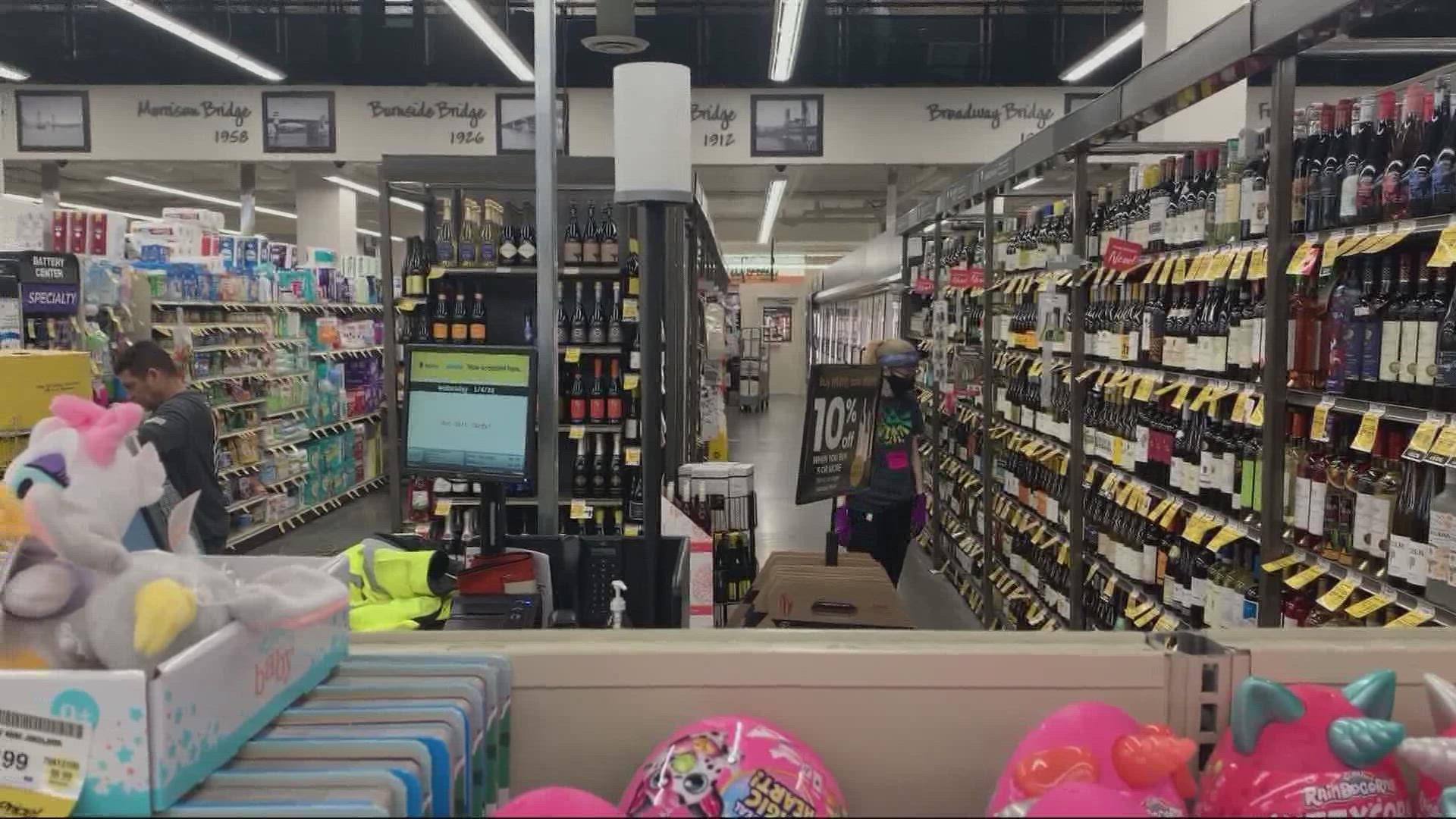PORTLAND, Oregon — The shoplifting epidemic in Portland is happening in plain sight. KGW has documented people stealing armloads of products that security experts like Scott Castleman say are resold on the black market.
“In my career in loss prevention, I’ve never seen anything to the degree that we have today. The brazenness of the shoplifters. Going in, knowing that they won't get caught, they don't even try and conceal anything anymore,” said Castleman.
If you walk into the Safeway store on Southwest 10th and Jefferson, you can see their new efforts to try and stop it: adding a dedicated, secured area within the store for what appears to be the most "lifted" items. You have to pay there before you can ever get close to the exit doors.
Maybe that gives security officers a better chance to stop the theft.
Safeway is not talking about their strategy here, or at the Safeway store in the Pearl district, the two stores KGW found with the new more secure areas.
Safeway sent KGW a one-line explanation, reading,
"Like other local businesses, we are working on ways to curtail escalating theft to ensure the safety of our employees and foster a welcoming environment for our loyal customers."
Castleman has decades of experience in security and loss prevention. He is not convinced this type of strategy will make much difference. Especially if staff and security are not allowed to stop and detain people, effectively making "citizen’s arrests" as Oregon law allows.
“And I’m telling you, the more these people start getting felony convictions the more they're going to stop shoplifting, because those involved in the criminal element talk to other people and they know who's soft on crime and who is hard on crime,” said Castleman.
Near the Jefferson Street Safeway is a Plaid Pantry. This convenience store is one of a half dozen with security concerns that could end up closing them. The local convenience store chain is trying to avoid that, so in the past year management has installed walk-up windows similar to what is found at banks. Customers are not allowed in the stores at night.
“It's not efficient, it's not good customer service. But it's just the only way, in certain stores, that we can control that situation,” said Plaid Pantry President and CEO Jonathan Polonsky.
Polonsky said there's not room in the profit margin for security guards and employee safety always comes first.
“We really preach hard about de-escalation so it's pretty demoralizing when someone comes in with a bag, waves at the associate, says “hi”, goes through the store, loads up their bag, walks out the door and says see you tomorrow, and they're back the next day,” said Polonsky.
Back at the bigger grocery stores, like the Gateway Fred Meyer, we are getting used to seeing products locked behind plexiglass, where paying customers must wait for assistance to get to them.
This and the new separate shopping areas we are seeing now at Safeway, are the inconvenient reality. Castleman said apprehension, police response and prosecution is what's worked in the past.
“And I worked at that 10th and Jefferson Safeway, I worked there in 1992 or 1993; we got hundreds of shoplifters out of there, hundreds. But very few would ever come back.”
For Polonsky it's safety first, but he agrees there needs to be more consequences to turn the tide on shoplifting.
“We have a great relationship with law enforcement. I know everybody's pressed right now, but we've got to do more to hold people accountable.”
A Portland Police Bureau spokesperson said they understand the frustration and feel it, too. And that while their focus has been largely consumed by increased homicides, gun violence and major traffic crashes, police will address shoplifting when possible.
PPB Sgt. Kevin Allen wrote, "While our responses are sometimes delayed, we do respond to property crime calls and we do investigate them as time allows. When arrests are made we do work with our partners at the Multnomah County District Attorney’s office in their effort to prosecute those crimes. Those who commit crimes should know that they’re absolutely risking facing criminal charges."

